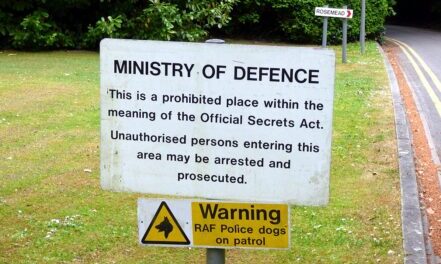
The Official Secrets Act
Concerns over maintaining the confidentiality of information regarding Britain’s national security have parallelled the changing world of communications and international travel. The first Official Secrets Act was passed in 1889 with the aim of deterring traitors and foreign spies and each iteration ~ in 1911, 1920, 1939 and 1989 ~ has increasingly tightened up the regulations to take account of new technology and world situations.
The current Act (1989) applies to ‘Crown Servants’, who include the armed forces, police, the civil service, intelligence agencies, Parliament and diplomats. It also applies to ‘Government Contractors’ and they may be asked to sign a document confirming their acknowledgement that they may be prosecuted if they fall foul of the Act. The restrictions are lifelong and the penalty is up to two years in prison or a fine. Guilt is determined by how much damage is judged to have been done to the country.
In 2021 there are moves to update and strengthen the Act again, with prison sentences leaping up to 14 years. If voted in, some journalists fear that it could prevent them from speaking to ‘whistleblowers’. It has long been suspected that the Act is partially to stop embarrassing or even scandalous information coming out about government activities. Perish the thought.
(Image: Peter O’Connor aka anemoneprojectors at Flickr.com / CC BY-SA 2.0)
